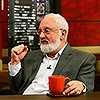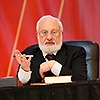The Jerusalem Post published my new article “The Happiness We (Wish We Could) Have“
The ego causes all of our wars, but it is not an enemy. If we use it right, by connecting ourselves to each other above our egos, we will learn how all of nature works.

On Monday, we commemorated the International Day of Happiness. Since 2013, it has been commemorated every March 20th.
Happiness is a challenging feeling to describe. Nevertheless, certain preconditions must be met in order for us to feel happy, or at least content: peace, stability, security of basic needs, and the ability to realize our full potential. Regrettably, today there seems to be anything but peace and stability. The Middle East is always on the verge of explosion, but now more than ever due to the involvement of Russia and the US in Syria. At the same time, Europe is torn between extreme left and extreme right, primarily around the immigration issue. The United States has sunk into internal bickering since the last elections, and antisemitism and violence have skyrocketed there. Russia is on the brink of an economic meltdown; Africa is suffering its worst famine since World War II, and China and Japan are both teetering economically and are concerned about North Korea’s nuclear threats.
In short, the world is on edge, and instability is no recipe for happiness.
On Envy, Lust, and Honor
What makes matters even worse is our growing self-absorption. We are becoming increasingly indifferent to the people around us and hostile toward anyone who offers a different view than ours. Too often, we regard anyone or anything that contradicts our view of reality as an enemy and feel as though only our view is valid. This creates a sense of entitlement, which leads to intolerance resulting from the denial of all other views. This is a recipe for violence induced entirely by narcissism, meaning egoism.
Throughout history, there has rarely been any reason for war other than egoism. Dressed as the pursuit of honor, wealth, or dominance, the ego has always been the primary cause of war.
Egoism is a uniquely human trait. All other creatures fight for survival and procreation, but have no regard for social status or desire to deliberately harm others. Conquistadors such as Alexander the Great or Napoleon do not exist in the animal kingdom simply because animals have no sense of history, no pride to cater to, and therefore no desire to take more than they need for sustenance. Their desires are restricted to securing their immediate existence.
Humans are different. The Mishnah tells us: “Envy, lust, and honor remove one from the world” (Avot 4:21). Envy is the key to understanding why we aren’t happy. It causes us to compete with others over power and respect, thereby making us constantly dissatisfied. As a result, as long as we are servants of our envy of others, we are doomed to dissatisfaction, frustration, competition, and worst of all—to hatred of others. In such a state, we cannot be happy.
Yet, the ego also pushes us to develop. Thanks to the ego, we drive to the supermarket to buy what we need, or better yet, order it online without setting foot outside, instead of dicing with death hunting mammoths. We also switch on the A.C. and set it to the desired temperature instead of warming ourselves by a cave fire and covering ourselves with animal fur. The ego has given us many great things, but if we conduct ourselves correctly going forward, we will be able to obtain far more precisely by using our egos.
Piecing the Puzzle
In animals, desires are restrained by nature. The interactions between the self-interests of the species and the limitations imposed on them by the environment create a balance that guarantees the thriving of all the species within the ecosystem.
Perhaps the best description I have heard to date of the mechanism by which nature balances its elements came from evolutionary biologist Prof. Elisabet Sahtouris. In November 2005, I was invited to speak at a conference in Tokyo titled, “Creating a New Civilization,” which was organized by the Goi Peace Foundation. Among the speakers was Prof. Sahtouris, who offered a concise description of the interactions between the forces that make life possible. “In your body,” she said, “every molecule, every cell, every organ and the whole body, has self-interest.” However, “When every level shows its self-interest, it forces negotiations among the levels. This is the secret of nature. Every moment, in your body, these negotiations drive your system to harmony.”
But what works for human bodies, does not work for the human psyche. Within us, evil in the form of egoism prevails through and through, as the Torah tells us, “The inclination of a man’s heart is evil from his youth” (Gen 8:21).
Yet, the absence of balance between self-interest and the interest of the environment provides us with the opportunity to create this balance by ourselves. It is as if nature has given us a puzzle whose pieces are all apart, and we must piece the puzzle back together. However, nature is also helping us achieve this because nature itself is the picture we must create when we connect all the pieces correctly. The reward at the end of the work is that by learning how the pieces connect, we also learn how nature works.
The ego is not our enemy; it is the substance keeping the pieces apart until we fit them into one another correctly, in accord with nature’s image. In this way, we learn how nature builds its mechanisms and maintains its balance.
As with any puzzle, one part’s protrusion is another’s dent. That is, instead of using our advantages to patronize others and feel superior to them, we should use them to “fill up the dents,” the disadvantages in others. When others do the same toward us, we create a solid and complete picture of reality.
People love to put together puzzles and to build things out of kits because this is how nature teaches us, and we’re just replicating the way that nature instructs us to find its secrets. If we could grasp this notion and relate to our egos in this way, we wouldn’t be competing with each other in the ruthless way we do today. Instead, we would attempt to climb above our egos and connect. In the process, we would learn how everything in nature fits together.
Making the Impossible Happen
We strive to be the masters of nature. But before we master nature, we must master our own nature. Learning how nature puts everything harmoniously together is the first step toward this. Once we have mastered the art of connection above the ego, we will be able to develop our species favorably for ourselves and for posterity.
Kabbalists and Jewish sages have known the principles for achieving balance and connection for millennia. They have been teaching them to their students in seclusion, but today’s rampant selfishness dictates that the entire world learns how to balance our unruly egos. This is why since the early 20th century, these wise individuals have been making every effort to make the paramount importance of connection over egoism known throughout the world.
In this respect, the book Likutey Etzot (Assorted Counsels) describes the correct approach toward attempting to connect: “The essence of peace is to connect two opposites. Hence, do not be alarmed if you see a person whose view is the complete opposite of yours and you think that you will never be able to make peace with him. Also, when you see two people who are completely opposite to each other, do not say that it is impossible to make peace between them. On the contrary, the essence of peace is to try to make peace between two opposites.”
In the beginning of this column, I said that happiness comes when we have peace, stability, security of sustenance of basic needs, and we can realize our full potential. Only if we adopt a positive and creative approach toward the ego, as was mentioned in the quote above, we will be able to establish a society that meets these criteria for happiness. The puzzle will not be complete until we follow the example of nature’s complete picture, where all the parts complement one another. Just as children learn how to put the pieces of the puzzle together, so must we. But in so doing, we will be assembling the pieces of our lives and the pieces of human society, thereby guaranteeing our happiness now and for the future.
[204287]
Filed under: New Publications - No Comments →














